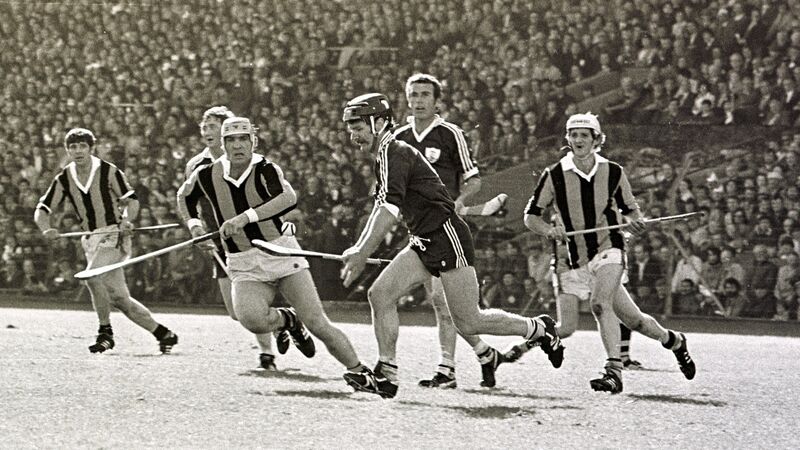Sean Silke on the day that changed everything: 'For too long we had been defined as losers'

Galway's Sean Silke solos past Kilkenny's Frank Cummins and Mick Brennan in the 1979 All-Ireland SHC final.
Try from €1.50 / week
SUBSCRIBEAfter the League final win, the celebrations went on for a bit, but I remember I was in the midst of doing college exams starting on the Monday so my involvement in the revelry was limited.
There were a lot of people who were emotional because it was 17 years since Galway had competed in anything of significance. Along the way, we had taken out some of the big guns. We beat Cork in the quarter-final and that was a great game, a typical game of two halves. We were playing with a gale in the first half and led by 2-8 to no score when Cork got a point.
Already a subscriber? Sign in
You have reached your article limit.
Annual €130 €80
Best value
Monthly €12€6 / month
Introductory offers for new customers. Annual billed once for first year. Renews at €130. Monthly initial discount (first 3 months) billed monthly, then €12 a month. Ts&Cs apply.
CONNECT WITH US TODAY
Be the first to know the latest news and updates
Newsletter
Latest news from the world of sport, along with the best in opinion from our outstanding team of sports writers. and reporters
Tuesday, February 10, 2026 - 9:00 PM
Tuesday, February 10, 2026 - 12:00 PM
Tuesday, February 10, 2026 - 9:00 PM
© Examiner Echo Group Limited